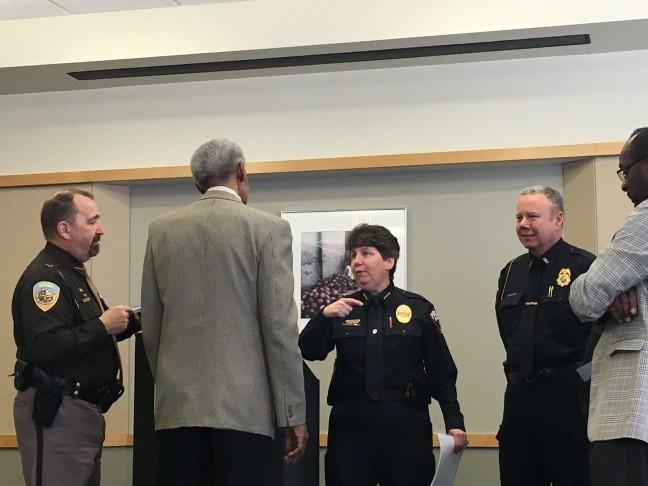The Law Enforcement and Leaders of Color Collaboration released a report Friday that gave recommendations on how to reduce police use of force and strengthen relationships between police and communities of color.
The Special Community/Police Task Force is an action-oriented mechanism formed to analyze current practices and offer recommendations on law enforcement’s use of force in high-risk situations, Renee Moe, president of United Way of Dane County said.
Sue Riseling, University of Wisconsin Police Department chief, said the officer-involved shooting of Tony Robinson and the public’s response highlighted the importance of this issue in Madison. Collaboration between group leaders of color, faith communities and law enforcement is necessary to address these issues, she said.
Addressing police use of force is important to strengthen the community, Greg Jones, president of the NAACP, said.
“Now is the time,” Jones said. “This is a necessary and important element in community building.”
The task force’s recommendations included practices to reduce excessive use of force, police academy training focused on de-escalation and weapons use, engaging and educating the community and ensuring the well-being of officers, Moe said.
The task force also recommended additional hours for in-service training for officers, Moe said. The hope is to better prepare law enforcement to deal with complex situations, she said
Mike Koval, Madison Police Department chief, said the task force’s work was part of a continued effort to break down barriers between law enforcement and people of color.
The task force also made the recommendation to ask Gov. Scott Walker to diversify the law of how footage from body cameras is made available to the public.
Moe said current legislation addressing body worn camera footage is too open. Making footage available to the public through open records could conflict with privacy concerns. She said she does not want the videos from body cameras, which can contain sensitive information, to just end up on YouTube.
Rev. Everett Mitchell, UW Community Relations director, said it is crucial for the community to eliminate racism and foster relationships.
“We have to commit ourselves to get rid of certain myths,” Mitchell said.


